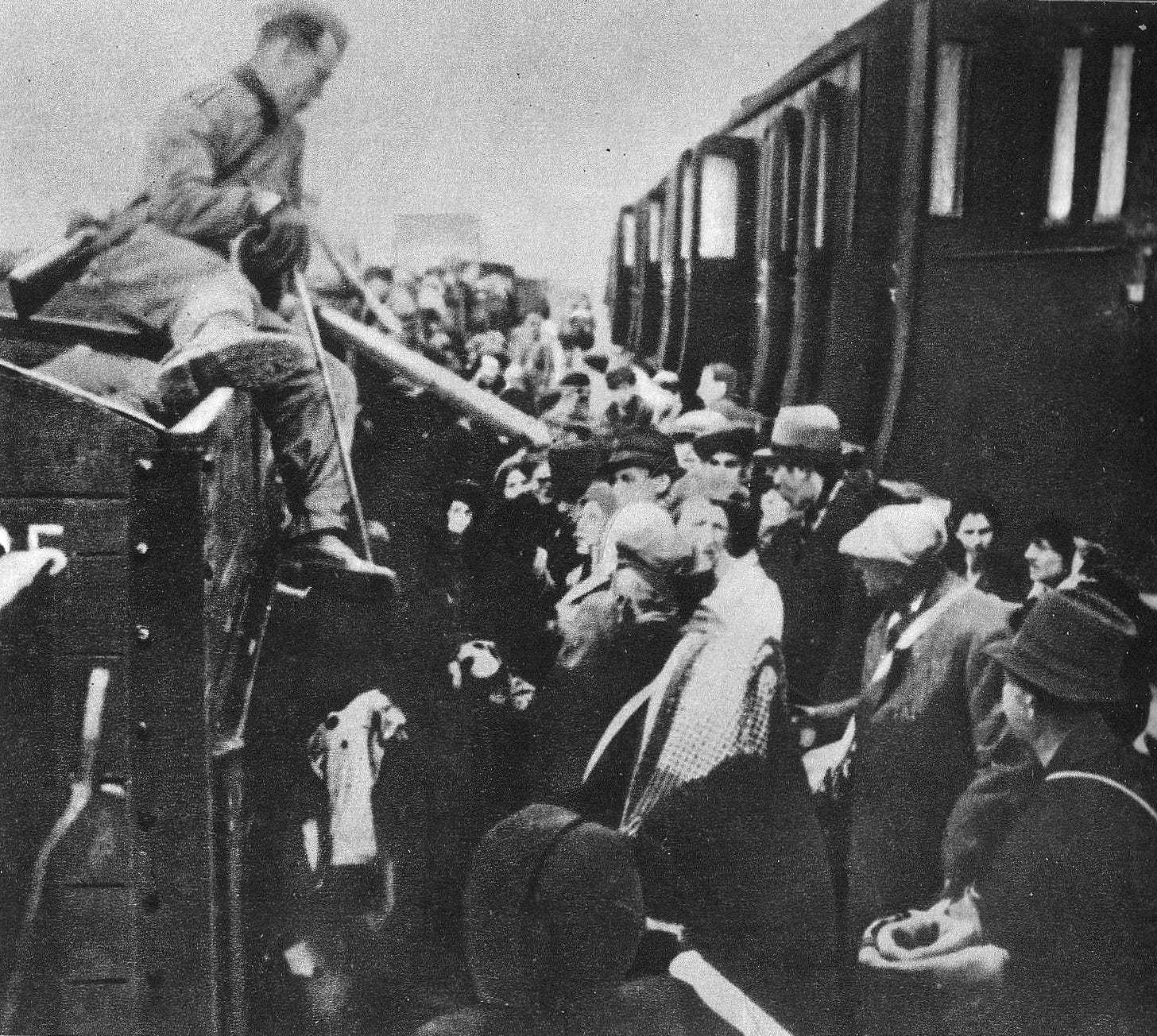Evil must be remembered & opposed
80 years after the liberation of Auschwitz, disinformation, bigotry, political violence & grave international crimes still threaten people around the world.
The Nazi death camp at Auschwitz was liberated 80 years ago yesterday, on January 27, 1945. On that day, Soviet troops freed the starving survivors of a web of concentration camps used for forced labor and the mass murder of more than 6 million people of Jewish ancestry.
At Auschwitz alone, as many as 1.5 million people were killed. More than 1 million of them were Jewish people.
The fascist regime of Adolf Hitler murdered 6 million Jewish people. The mass murder was not limited, however, to Jewish people. The Nazis also murdered 3.3 million Soviet prisoners of war, 1.8 million non-Jewish people of Polish origin, at least 250,000 and possibly as many as 500,000 Roma, more than 310,000 Serb civilians, and an estimated 250,000 to 300,000 people with disabilities. They also killed tens of thousands of others, including people of African ancestry, dissidents, men suspected of homosexual activity, and republicans—who stood for the defense of human rights and freedom against authoritarian abuses.
The war started and perpetuated by Nazi hate and violence would eventually lead to at least 85 million deaths, around the world.
The lessons of the Holocaust are many and far-reaching. First of all, the horrors revealed at Auschwitz made clear that absolute evil does exist, and humankind must organize all of society to oppose it. Also clear was the extreme derangement not only of leaders, but of an entire society that surrendered to bigotry and hate. The dehumanizing effect of hate reached every corner of the Nazi state, until no one’s humanity had value.

At Auschwitz, Birkenau, and other Nazi death camps, millions of people were subjected to enslavement, torture, summary execution, starvation, and mass extermination. The Nazis used poison gas to kill dozens or even hundreds of people at a time, in fake mass showers. They burned the bodies, and many survivors have described being haunted forever by the ashes of exterminated human beings falling through the air or being piled up and plowed into fields in vast quanities.
When the Soviet soldiers entered the camp, they had little forewarning of what they would find. They found 7,600 emaciated prisoners, nearly all of whom were on the brink of death from starvation. There were also hundreds of corpses not yet burned by the fleeing Nazis, and evidence of the gas chambers and mass extermination. There were hundreds of thousands of garments, more evidence of mass killing the Nazis had not yet burned, and a reported 7 tons of human hair that had been shaved from prisoners.
To this day, we must still struggle to come to grips with the reality that a modern society of free people, with democratic institutions, so easily surrendered its conscience, and its character, to individuals that were not only unworthy, but violently at war with humanity itself. The philosopher Hannah Arendt famously observed “the banality of evil”, to describe the ways in which seemingly insignificant moments of surrender make room for evil to enter into the lives and politics of people who don’t see themselves as evil.
Nazi atrocities were made possible by a years-long campaign of horrifying collective delusion. Bigoted lies had become propaganda; the Nazis used those lies to seize power and turn Germans against their friends, neighbors, and colleagues. People who knew it was wrong to allow others to be abandoned to street violence, menace, and terror, to be abducted from their homes and deprived of their rights, freedom, and families, participated in those degradations, either through silence or complicity.
The horrors of the Nazi death camps made it necessary to establish a system that would identify, investigate, prosecute, and punish war crimes and crimes against humanity. War crimes are violations of the laws of war. Crimes against humanity are violations so extreme they threaten the sanctity of human life itself, and put all people at risk should such actions spread.
In the aftermath of the Second World War, the Nazi regime was dismantled and its leaders and co-conspirators were indicted and imprisoned for their crimes. The community of nations, recognizing the need to cooperate to guard against such horrors ever becoming possible again, began building the United Nations and a system of international law.
Not only would nations commit to “to save succeeding generations from the scourge of war” and “to practice tolerance and live together in peace with one another as good neighbours”; they would establish new institutions to address pressing needs that could turn into the seeds of conflict.
In our age of pervasive disinformation industrialized by new artificial intelligence technologies and social media bubbles sometimes so thick with falsehood users cannot find their way to factual reporting, we must remember the Holocaust and reckon with what is at stake if dehumanizing rhetoric is allowed to take root and become normal.
Dehumanizing rhetoric dehumanizes all of us, not just those targeted by the speaker. Words are never just words. Our political spaces are shaped by language, and laws make language into institutions and actions.
Right now, in conflicts around the world, tens of millions of civilians face violent threats, acute hunger and famine conditions, forced displacement, the perils of human trafficking and mass camps, and the very real risk that they will be abandoned by the attention of the world community, subjected to further torment by extremists and warlords who profit from their suffering.
The memory of the Holocaust teaches us to not look away, to not remain silent when we see people in our own societies being treated as unworthy of protection, to work to make decency the guiding force in human affairs.




